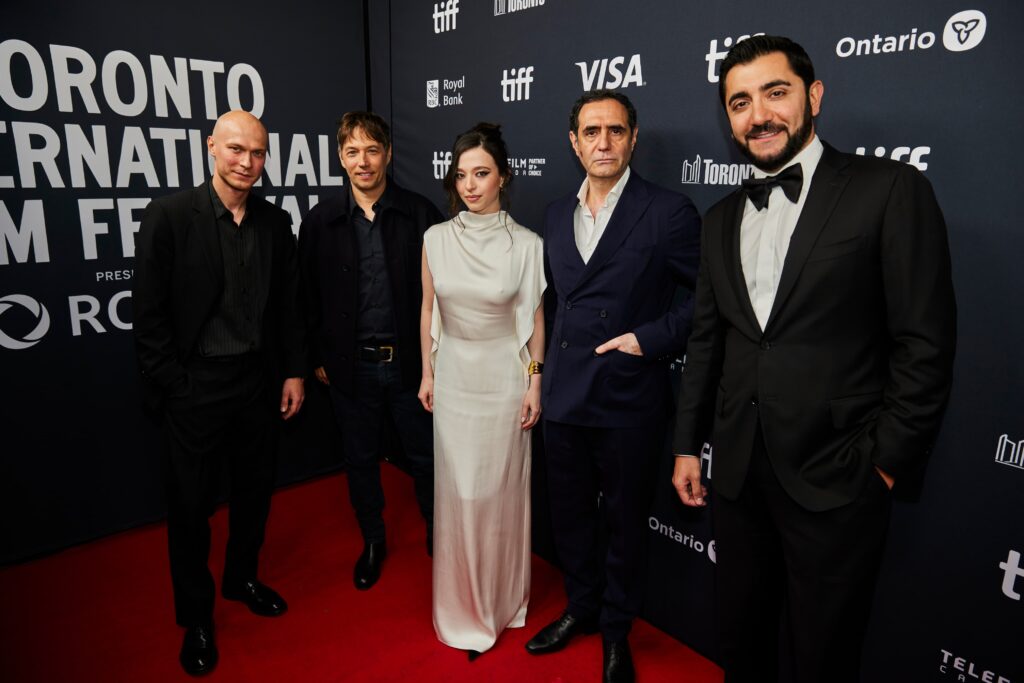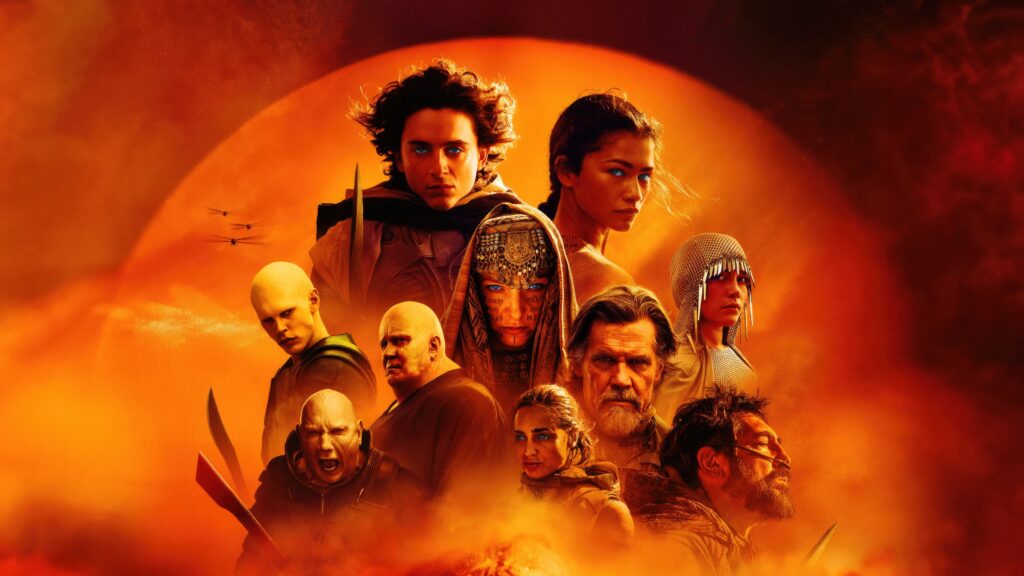The 2025 Academy Awards were a stunning night of triumph and recognition, filled with exceptional performances, groundbreaking films, and creative artistry. Hollywood’s brightest stars, from directors to actors, gathered to celebrate a year of remarkable achievements in the world of film. The awards ceremony highlighted not only the talent in front of the camera but also those who worked tirelessly behind the scenes, bringing their creative visions to life. The 97th Academy Awards, held in Los Angeles, were a testament to the power of storytelling and the enduring influence of cinema.

This year’s ceremony saw a broad spectrum of films garnering nominations and recognition, including both big-budget blockbusters and independent masterpieces. Films like Anora, The Brutalist, Wicked, and Dune: Part Two captured the attention of audiences and critics alike, securing their place in the conversation about the best that 2025 cinema had to offer.
Best Picture: Anora

The night’s biggest winner was undoubtedly Anora, a mesmerizing exploration of identity, love, and the human condition. Directed by Sean Baker, Anora captured the Best Picture Oscar, further cementing Baker’s reputation as one of the most innovative filmmakers of his generation. With its raw performances, poignant storytelling, and unique narrative structure, the film resonated deeply with both critics and audiences. Anora’s blend of intimate storytelling and broader societal themes earned it widespread praise.

Academy voters recognized Anora for its ability to balance art-house sensibilities with mainstream appeal. Its compelling story, driven by Mikey Madison’s unforgettable performance, resonated with viewers on a deep emotional level. The film’s success was not just in its powerful plot but also in its visual language, a collaboration between talented individuals such as Nathan Crowley and Lee Sandales, who brought the film’s production design to life.
Best Actor: Adrien Brody in The Brutalist

The Best Actor award went to Adrien Brody for his stunning performance in The Brutalist. Brody’s portrayal of a conflicted, emotionally complex architect struggling with his own demons was lauded for its depth and authenticity. The role required Brody to delve into complex psychological territory, and his nuanced performance was a perfect fit for the gritty, thought-provoking narrative of The Brutalist.

In a film that explored themes of architecture, isolation, and personal conflict, Brody’s performance stood as the emotional core. His ability to portray both vulnerability and strength earned him this prestigious honor. The Academy voters clearly appreciated the intricate work Brody put into crafting a character that left a lasting impression.
Best Actress: Mikey Madison in Anora

The Best Actress award was claimed by Mikey Madison for her role in Anora. Madison’s portrayal of a young woman grappling with the loss of identity in a modern, fragmented world was mesmerizing. Her performance captured the delicate balance of fragility and resilience, and she successfully conveyed the emotional and psychological complexities of the character.

Her exceptional work in Anora not only solidified her place as one of Hollywood’s brightest young stars but also helped elevate the film to new heights. Critics hailed her performance as one of the most captivating of the year, and it was no surprise when she walked away with the Oscar for Best Actress.
Best Production Design: Wicked

The Best Production Design Oscar went to Wicked, with Nathan Crowley and Lee Sandales receiving the recognition for their work in creating the visually stunning world of the film. Based on the popular Broadway musical, Wicked required a rich, imaginative set design that transported audiences to a fantastical realm. Crowley and Sandales did just that, blending the familiar elements of the musical with new, visually captivating designs that brought the world of Wicked to life.
The film’s lush sets, vibrant colors, and intricate details reflected the magical and otherworldly atmosphere of the narrative. The production design helped immerse audiences into the story and contributed to the film’s overall impact.
Best International Feature Film: I’m Still Here

Walter Salles’ I’m Still Here took home the Oscar for Best International Feature Film. The film, which explores the journey of a displaced refugee seeking a better life, resonated with audiences worldwide. With its empathetic portrayal of the refugee experience, I’m Still Here highlighted the emotional toll of migration while celebrating the resilience of the human spirit.
Salles, known for his powerful storytelling and commitment to social issues, brought an authenticity and raw emotion to the film that was universally praised. I’m Still Here’s success at the Oscars was a testament to the importance of diverse voices in global cinema and the Academy’s growing recognition of international filmmakers.
Best Original Song: El Mal by Jacques Audiard and Camille
Jacques Audiard, alongside composer Camille and lyricist Clément Ducol, won the Oscar for Best Original Song for El Mal, featured in the film El Mal. The haunting melody and evocative lyrics captured the essence of the film’s tragic narrative, earning the duo widespread acclaim. The song’s deep emotional resonance and its ability to convey the story’s themes through music were key factors in its victory.
Music plays a crucial role in shaping the emotional tone of a film, and El Mal became a central piece of the movie’s emotional landscape. It was no surprise that the Academy voted to recognize it for its contribution to cinema.
Best Animated Feature: Flow
The Best Animated Feature Oscar went to Flow, directed by Gints Zilbalodis, Matīss Kaža, and Ron Dyens. This stunning animation captivated audiences with its mesmerizing visuals and thought-provoking narrative. Flow told the story of a young girl navigating a surreal and symbolic world, and its unique animation style brought the fantastical elements of the story to life in ways that were both innovative and visually striking.
The film’s directors, along with their team, pushed the boundaries of animated storytelling, creating a world that was as beautiful as it was thought-provoking. Flow became a favorite among animation enthusiasts and won over Academy voters with its artistic excellence.
Best Director: Sean Baker for Anora
The Best Director award went to Sean Baker for Anora, a testament to his skill in crafting a film that was both emotionally powerful and visually distinctive. Baker, known for his work on films like The Florida Project and Tangerine, demonstrated once again his ability to tell deeply human stories in unique and compelling ways.
His meticulous direction and attention to detail ensured that Anora resonated with audiences on multiple levels, making it a deserving winner of the Best Director award. Baker’s dedication to authenticity, representation, and innovative storytelling has continued to elevate his work and make him one of the leading voices in modern cinema.
Best Supporting Actor: Kieran Culkin in A Real Pain
Kieran Culkin won the Best Supporting Actor award for his role in A Real Pain, a darkly comedic exploration of family dynamics and personal struggles. Culkin’s sharp wit and emotional depth added a unique layer to the film, helping to elevate its already impressive narrative. His performance as a complex and deeply flawed character resonated with both audiences and critics, and his recognition by the Academy was well-deserved.
Best Supporting Actress: Zoe Saldana in Wicked

The Best Supporting Actress Oscar was awarded to Zoe Saldana for her role in Wicked. Saldana’s portrayal of a secondary character in the fantastical world of Wicked helped ground the story in reality. Her nuanced performance was a standout in an ensemble cast, and she brought a depth to her character that made her an integral part of the film’s success.
Best Film Editing: The Substance

The Oscar for Best Film Editing was awarded to Pierre Olivier Persin, Stéphanie Guillon, and Marilyne Scarselli for their work on The Substance. The film’s seamless pacing and intricate editing were key in building its tension and emotional depth. The editors’ ability to craft a story through the careful manipulation of time and space helped elevate The Substance to its critical acclaim.
Best Cinematography: The Brutalist
Lol Crawley won the Best Cinematography award for The Brutalist, a film that made stunning use of light, shadow, and architectural elements to tell its story. Crawley’s work was instrumental in creating the oppressive and atmospheric tone of the film, allowing it to resonate visually as well as emotionally.
Best Visual Effects: Dune: Part Two

The Academy awarded Dune: Part Two the Oscar for Best Visual Effects. With its grandiose scale, breathtaking visuals, and impeccable design, Dune: Part Two continued to push the boundaries of visual storytelling. The work of Gerd Nefzer, Stephen James, and Rhys Salcombe in bringing the expansive world of Dune to life was recognized by the Academy as a technological and artistic achievement.

Conclusion
The 2025 Academy Awards highlighted the vast array of talent and creativity that has come to define modern cinema. From Anora’s sweep of major awards to Dune: Part Two’s visual triumphs, this year’s ceremony showcased the diversity of film in all its forms. With a mix of innovative storytelling, powerful performances, and exceptional craftsmanship, the 2025 Oscars reaffirmed the magic of cinema and its ability to captivate and inspire audiences around the world. As the industry continues to evolve, the legacy of the 2025 Academy Awards will undoubtedly stand as a testament to the art of filmmaking in all its many facets.











3 thoughts on “Academy Awards 2025: A Celebration of Cinematic Excellence”